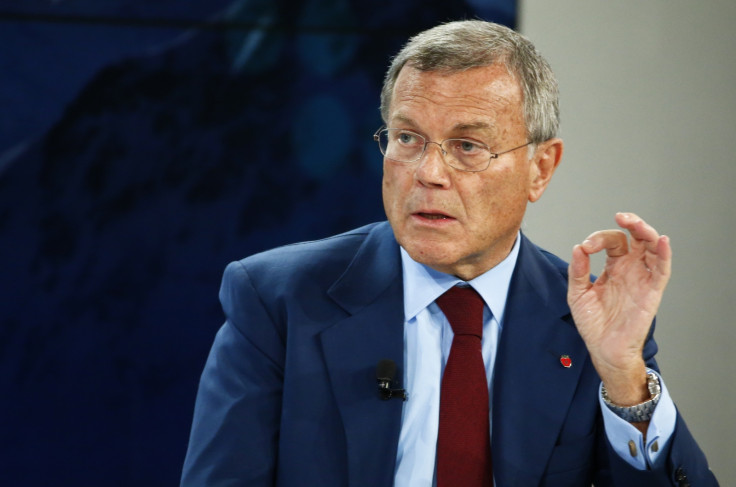World wealth inequality: WPP's Sir Martin Sorrell dismisses 'wealth inequality damages prosperity' claim

Sir Martin Sorrell, the boss of advertising giant WPP, has hit back at critics of global financial inequality and has dismissed comments from International Monetary Fund head Christine Lagarde, who claimed wealth inequality damages prosperity.
Sir Martin Sorrell was speaking at the World Economic Forum (Wef) in Davos, Switzerland, after a recent Oxfam study showed the richest 1% of people in the world will own over 50% of its wealth by 2016.
Sorrell defended the world's richest people - dubbed 'the 1%' - and said people like him create thousands of jobs and invest billions in human capital each year.
He added that WPP was built from the ground up, starting with just two people, and the group now employs 179,000 people in 111 countries and invests $12bn (£8bn, €10.6bn) a year in human capital.
"I make no apology for that whatsoever," said Sorrell.
In 2014, Sorrell, whose net worth is estimated at £200m, survived a significant revolt against his hefty pay and bonuses.
More than a quarter of WPP shareholders protested at the group's AGM over his £30m package - the highest of any FTSE 100 leader. However, WPP's majority shareholders, who are largely institutional investors, approved the company's remuneration report.
Growing wealth chasm
Earlier this week, Oxfam said 48% of the world's wealth was owned by the richest 1% in 2014 and this is set to grow over the next 12 months.
"The scale of global inequality is quite simply staggering and despite the issues shooting up the global agenda, the gap between the richest and the rest is widening fast," said Winnie Byanyima, executive director of Oxfam International.
Oxfam's study shows the world's wealthiest individuals boast average wealth of $2.7m each.
But the average population, classed as "non-rich", have an average of just $3,851 per adult and account for only 5.5% of global wealth.
Earlier today (23 January), on the third day at Wef, the head of the International Monetary Fund, Christine Lagarde, warned excessive inequality is bad for global growth, and highlighted how the wealthy profited significantly from the rise in asset prices after the 2007-2008 credit crisis.
© Copyright IBTimes 2024. All rights reserved.






